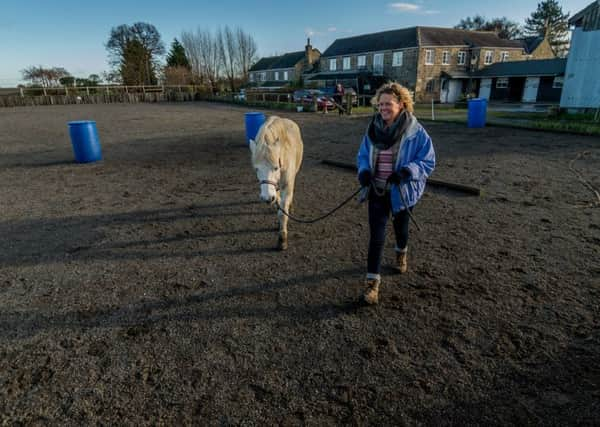TYP Christmas Campaign: Yorkshire families face heartache over wait for autism diagnosis


Families in the region have been facing long waits of months or even years despite guidance youngsters should be seen within 12 weeks for an assessment for the developmental disorder.
But after a large increase in the number of children referred for help the situation has grown worse in parts of the region as the NHS struggles to cope.
Advertisement
Hide AdAdvertisement
Hide AdIn Hull referrals were up 41 per cent for the financial year 2016/17 compared with 2015/16.
The average waiting time there is currently 30.2 weeks - up from 18.9 in November 2016.
In Leeds, there was a 35.4 per cent increase in the referral rate between March 2016 and February 2017.
The average waiting time in the city is now 20 weeks, but earlier this year a report to the council told how the rise and a limited pool of assessors meant plans to reduce the waiting time to 12 weeks, initially intended by the end of 2016, had been hampered.
Advertisement
Hide AdAdvertisement
Hide AdThe report said in March 2017 the total number of young people waiting for assessment was 193. Of those, 147 had waited more than 12 weeks. The longest wait was around 45 weeks.
Harrogate and Rural District Clinical Commissioning Group (CCG) also told of a continued rise in referrals.
Hull West and Hessle MP Emma Hardy called on the Government to take action.
She said: “Getting an autism diagnosis is a crucial milestone for autistic people and their families. It helps people take control of their lives by helping to unlock barriers to essential support and services. It also enables individuals to better understand themselves, families to better understand their child and reduces anxiety by helping to provide an explanation for many years of feeling “different”.”
Advertisement
Hide AdAdvertisement
Hide Ad“30 weeks is just too long to wait and it’s heart breaking to see that the waiting time is longer since this time last year. This is a direct effect of the Government’s spending cuts and their refusal to spend money in the short term to save more in the long term.“
The Yorkshire Post’s Christmas appeal is this year calling on readers to support the Autism Angels which uses horses to help children on the autistic spectrum. Your donations will help families with children with autism access life-changing support services and mentoring programmes run by this innovative local charity.
Across Yorkshire the situation shows a postcode lottery for children in need of help.
In Airedale, Wharfedale, Craven, and Bradford as of March 2017 the average wait was around 16 months, with a total of 455 children waiting. Funding has been found to address the longest waits.
Advertisement
Hide AdAdvertisement
Hide AdAcross the whole of Kirklees, there were 267 young people waiting for an assessment at the end of October 2017, 113 had been waiting between six and 12 months, 133 had been waiting between 12 and 24 months and 21 had been waiting more than two years.
Harrogate CCG said their average waiting time for patients referred between April and October this year was 28 weeks and they were looking to reduce it further. They added extra clinics meant they had managed to reduce waiting times significantly.
The figures come just months after the Government announced that autism diagnosis waiting times in England would be recorded nationally following years of campaigning by the National Autistic Society (NAS).
The NAS aims to push for local areas to be accountable for their waiting times and to make sure they have all the resources they need locally.
Advertisement
Hide AdAdvertisement
Hide AdKelvin Dixon, communications and engagement support officer at Hull CCG, said families on the waiting list had access to services and support that had previously only been available to children after diagnosis.
“We recognise that this wait is not acceptable, and, to address this, the service is running additional clinics, including clinics on Saturdays, to help to manage the increase in referrals and reduce waiting times,” he said.
Sam Prince, director of operations at Leeds Community Healthcare NHS Trust, said the average waiting time had been reduced to 20 weeks.
He said: “As a result of additional clinics we are pleased to say that the number of those waiting over 12 weeks has halved since April 2017 and we are working hard to reduce this further.”
Kirklees CCGs said they had made significant efforts to improve waiting times including additional assessments. They aim to reduce waiting times over the next year.